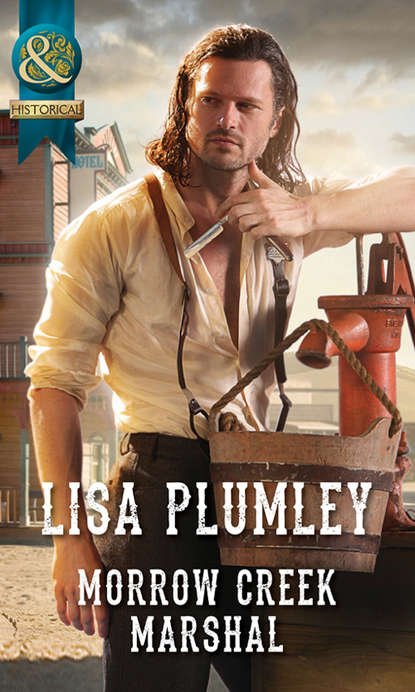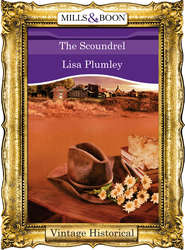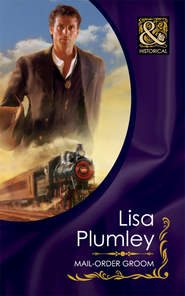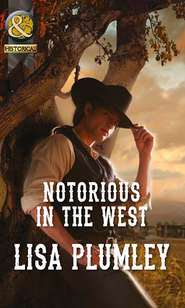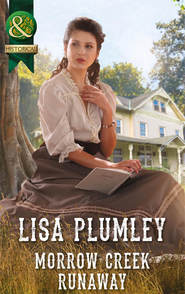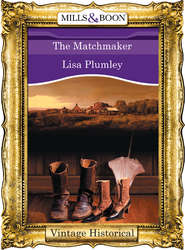По всем вопросам обращайтесь на: info@litportal.ru
(©) 2003-2025.
✖
Morrow Creek Marshal
Настройки чтения
Размер шрифта
Высота строк
Поля
“Drifters?” Dylan felt compelled to ask. “Like me?”
But unlike Marielle, no one seemed to believe he’d earned that moniker. A few men chuckled. More shook their heads. All gazed at him with that same damn unearned faith and expectancy.
What the hell had he done to earn this? Only his job.
“—we don’t have time for bureaucratic paperwork shuffling,” the editor continued. “We just need to get on with it.”
“Uh-oh. If Walsh don’t want paper shuffling,” Hofer said with a laugh, “this situation is right next door to doomed.”
Everyone laughed. But the newspaperman merely continued in his usual earnest fashion. “We’ll have a proper election,” he assured Dylan. “But while you’re serving, instead of before. During your first term, rather than wasting time with campaigns and signs and speeches. It’s more efficient that way. You can get started straightaway protecting everyone in Morrow Creek.”
They all beamed at him, but Dylan balked anew.
Protecting...everyone? That sounded like a nightmare to him.
Resolutely, he squared his shoulders. He sobered his expression. He held up his arms. An instant hush fell.
Damnation, he couldn’t help thinking. They were serious.
They truly expected leadership from him. Safety.
The realization was worrying. And all the more reason he had to put a stop to this before it went any further.
“Far be it from me to deny Walsh, here, the joy of organizing an emergency election,” Dylan tried with a grin. “Not to mention the whole caboodle of newspaper coverage that’ll go along with it. But it’ll have to happen without me.”
They didn’t seem to understand. “We already voted,” Clayton said. “At the men’s club meeting. You’re the man for the job.”
Everyone agreed—even as, at the other end of the saloon, the piano player tinkled a few keys. It felt as though ages had passed, but it must have been only a few minutes. The dance hall girls didn’t typically take a long break. They couldn’t risk losing customers who would drift away during a lengthy interval.
Speaking of dance hall girls...where was Marielle Miller? As the queen of obstinacy, she should have refused to budge from her chair until Doc Finney properly saw to her injury.
Funny thing was, Dylan couldn’t help musing, in her shoes, he would have refused help, too. They were alike in that way.
They were alike in several ways, when it came to it. But he couldn’t think about that now—not with a whole saloon full of people expecting him to ride to the rescue as their new sheriff.
“I already have a job,” Dylan protested more strongly. “In Sacramento.” He took out his pocket watch and glanced at it. “In fact, I can probably make the next train west if I leave now.”
Remarkably, everyone laughed. Some men raised their ales and whiskies in apparent toasts to what they assumed was Dylan’s customary joshing. Growing concerned, he glanced at the door.
He had an awful feeling he wouldn’t be catching that train.
“I guess you should’a gone to the meeting, eh?” Nickerson yelled, rubicund and jolly even before receiving his first pint of ale. “So you could cast the only vote against yourself.”
Everyone roared with glee. But Dylan started pacing.
Thomas Walsh noticed. “It’s just the usual sheriff’s job, Mr. Coyle, nothing more,” he promised Dylan. “Peacekeeping, serving summons, collecting tax money, investigating crimes—”
“I’m not the man you’re after,” Dylan said more plainly.
“You are exactly the man we’re after,” Miles Callaway maintained. He aimed his chin at the friends he’d made since coming to Morrow Creek from Boston. “Or do you have such little faith in our judgment that you’d disagree with all of us?”
Each of their gazes veered to his face. Held. Stubbornly.
Glancing beyond the men for a respite from this wrinkle in his getaway plans—from this entirely unwanted obligation—Dylan glimpsed movement near the saloon’s door. A huge man lumbered toward it with a woman in his arms—a woman who was pointedly directing him exactly where and in what fashion to carry her.
Marielle Miller. She was hearty enough to dispense orders. That meant she would be all right. In her wake, Jack Murphy watched contentedly as his lead dancing girl left in the man’s keeping.
Evidently, Dylan’s responsibilities to her had ended.
He was free to leave. Free to drift to the next town, the next job...the next person who would disappoint him in the end.
“What’s it going to be?” Copeland pressed. “Sheriff?”
Sheriff. Not liking the sound of that, Dylan frowned.
But everyone else shifted and murmured, plainly het up. They wanted him for this job. Dylan knew he could still refuse.
More than that, he had to refuse.
But then, on the verge of turning to do so, he caught another, more surreptitious movement near the saloon doors. As Marielle passed by, a wiry man in a long coat and hat stepped out from the shadows. He watched Marielle with avid interest.
Dylan recognized him as one of the Sheridan boys. Charley, he thought. Charley Sheridan. The wily ringleader. At the realization, Dylan’s blood iced over. Why the hell would one of those criminals be interested in Marielle Miller? Or, he saw further, in trading a shifty nod with the man carrying her?
As though sensing Dylan’s attention, Sheridan transferred his gaze from Marielle...to Dylan. Calculatingly, he narrowed his eyes. Whatever was going through his mind, it wasn’t good.
“I’ll do it.” Dylan turned, saw the tin star held by Marcus Copeland and closed his fist around it. “Starting now.”
* * *
Forty minutes after leaving the saloon, Marielle found herself at home with an elaborately bandaged ankle, an order to rest up with no dancing allowed for an impossibly lengthy period of at least four weeks...and a younger brother who’d been plumb tuckered out by the events of the evening.
With a sigh, she glanced at Hudson. In the glow of the lamplight, he sprawled across his cot in their small house’s front room, still wearing all his clothes and boots, snoring.
His familiar snuffle rent the stillness. He snorted, then turned over and flopped on his side, facing her fully now.
Looking at his peaceful face, Marielle couldn’t help giving a pensive smile. That was Hudson to a tee. Now that the kerfuffle was over—at least for him—he was oblivious to everything but his pillow. Her brother lived life as it was handed to him, neither striving for more nor complaining when there was less. Hudson was jovial and giving, simple and free.
He was as big of heart as he was massive of body, and although he hadn’t strictly amounted to much in the traditional sense—having no steady employment nor a wife and family to call his own—he was nonetheless content. Hudson tried sometimes, at Marielle’s urging, to find steadier work. He tried to grow up as fully as they both knew he needed to. But his every attempt ended up confirming the same foregone conclusion.
“I can’t keep on with that job, Mari,” Hudson would say, shaking his head with his soft brown eyes fixed on hers. “Who will look after you while you’re dancing? I can’t leave you.”
Every time, Marielle would soften. Every time, she would see the end arriving along with the beginning and be helpless to stop it. Because all she knew were dancing and sewing, and the former was much more lucrative than the latter. Plying her needle did not support two people nearly as well as dancing did.
It would have been churlish of her to quit performing. Yes, Hudson enjoyed drinking and throwing dice at the saloon a bit too much. Yes, she regretted that her employment kept them both in such overall corrupting quarters. Jack Murphy’s saloon was better than most—better than many she’d worked in during her journey westward after her mother had passed on—but it was still a place where men went to imbibe, carouse, fight and forget.
Sometimes, she thought, Hudson wanted to forget, too. Sometimes, she thought, Hudson missed New York, missed the backstage work he’d done at the fancy theater there, missed their mother and their absentee father most of all. But then her brother would make a joke or tug her hair or laugh over some memory of their time together back in the States—before it had all fallen apart—and Marielle would tell herself he was fine.
After all, he had no more to forget than she did. If her own memories didn’t send her to drink and smoke and carouse to excess, then why would they do so to Hudson? Men could handle their intoxicants better than women, anyway. Everyone knew that.





